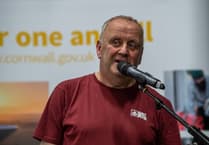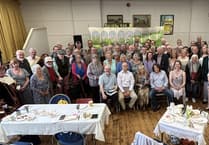The Church of England has developed an ambitious plan to reach net zero carbon emissions by 2030.
This plan includes the use of carbon-offsetting strategies, green energy sources, solar panels and new heating and lighting technologies.
Perhaps its greatest challenge is how to enhance the energy efficiency of its older churches.
One of the most innovative solutions is to develop ways of keeping the people in the buildings warm, rather than trying to heat the vast spaces of these buildings as a whole.
This is an approach adopted this spring by the Church of St John and St Petroc in the idyllic rural parish of Devoran, just a few miles south of Truro.
“How do you insulate a whole church? There’s no real way you entirely can,” said Dr Adrian Walker, lay chair of Devoran’s Parochial Church Council.
The church had depended for decades on an increasingly unreliable oil-fired boiler, which had tended to stop working at the most inopportune moments – often around Christmas time.
“But just replacing the boiler didn’t fit our requirements in terms of getting to net zero,” Adrian said.
Their solution was simple. You could reduce the need for ambient heating if you focused on keeping the people themselves warm. You didn’t need to have the rafters anywhere near as toasty.
“It’s a system used widely on the continent in much colder climes than Cornwall,” Adrian explained.
“It’s basically the same as heated car seats – heated pews. It’s incredibly cheap, as it runs on a very low wattage. These heated seats work exceedingly well. They’ve been very well received – there are lots of smiles all round!”
Devoran’s initiative is enthusiastically welcomed by Ben Lillie, environment officer at the Diocese of Truro.
“It’s great that we have churches pioneering the way towards net zero,” Ben said.
“As with all things related to addressing the climate crisis, there’s a cost involved, but we believe that this is a vital investment in the future of the church and of our world, so that we can flourish and be fruitful for decades and centuries to come.
“It’s so encouraging that our churches can offer a genuinely sustainable warm welcome.”
Matt Fulford, who advises the Church of England on reaching its net zero carbon target, agrees. On a visit last month to Cornwall, he commended seat heating units as a key way forward.
“They’re directly heating the person rather than the entire volume of the church, which can be quite massive. So that’s very efficient.”
Matt is passionate in his belief in the value of such efforts and in his hopes for their long-term impacts.
“The Church of England has done quite huge amount in a very short space of time,” he said.
“Don’t think it’s impossible. This can be done. It’s not difficult to do. It can be done with today’s technologies. It is being done.”





Comments
This article has no comments yet. Be the first to leave a comment.